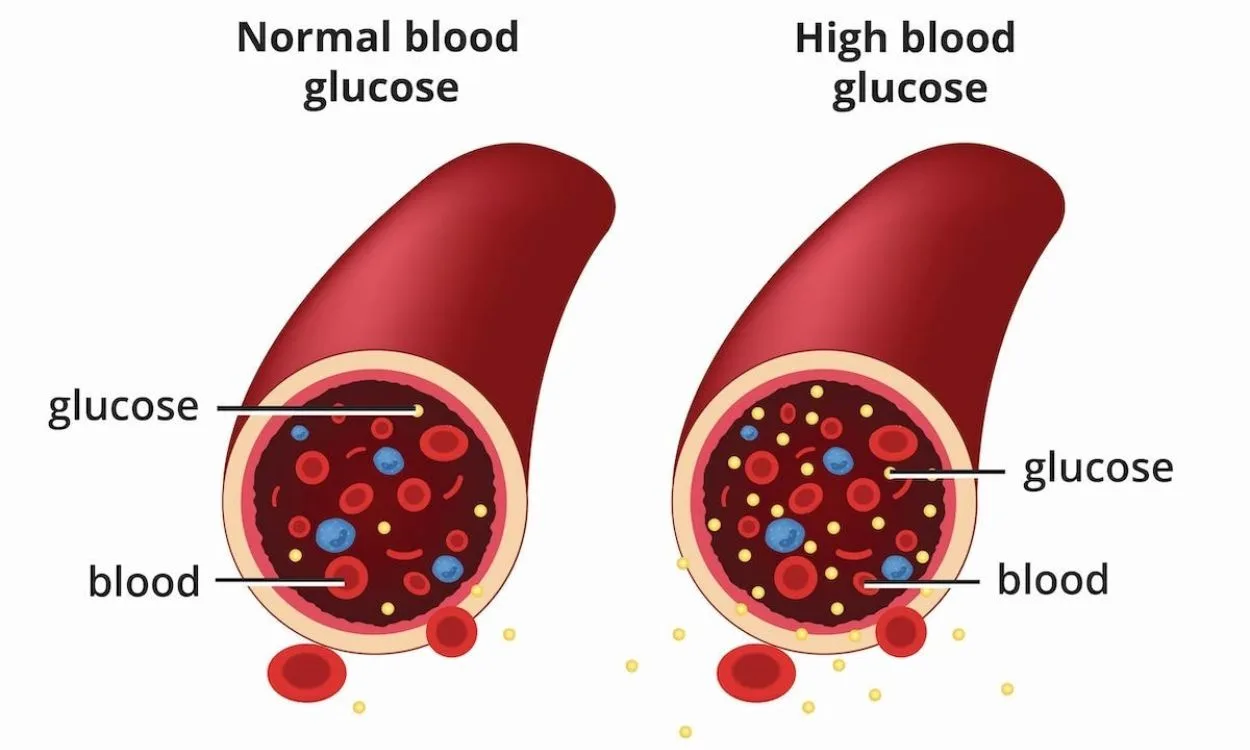How Does Diabetes Affect Blood Sugar Levels in the Body?
Diabetes is a chronic medical condition that affects the body’s ability to regulate blood sugar levels. In a healthy individual, the pancreas produces insulin, a hormone that helps move glucose (sugar) from the bloodstream into the cells for energy. However, in individuals with diabetes, the body either doesn’t produce enough insulin or cannot effectively use the insulin it produces. This leads to an accumulation of glucose in the bloodstream, resulting in high blood sugar levels.
To understand how diabetes affects blood sugar levels in the body, it’s essential to explore the two main types of diabetes: type 1 and type 2.
Type 1 Diabetes:
Type 1 diabetes is an autoimmune disease where the immune system mistakenly attacks and destroys the insulin-producing cells in the pancreas. Without sufficient insulin, glucose cannot enter the cells, causing it to accumulate in the bloodstream. This results in high blood sugar levels, requiring individuals with type 1 diabetes to take insulin injections or use an insulin pump to manage their blood sugar levels.
Type 2 Diabetes:
Type 2 diabetes is characterized by insulin resistance or a reduced ability of the body’s cells to respond to insulin. Initially, the pancreas compensates by producing more insulin, but over time, it may not be able to keep up with the demand. As a result, glucose remains in the bloodstream instead of being transported into the cells.
Several factors contribute to the development of type 2 diabetes, including genetic predisposition, sedentary lifestyle, poor diet, obesity, and age. Managing type 2 diabetes often involves lifestyle changes such as adopting a healthy diet, engaging in regular physical activity, and, in some cases, taking oral medications or insulin injections.
Impact of High Blood Sugar Levels on the Body:
Consistently elevated blood sugar levels can have detrimental effects on various organ systems in the body. Some of the complications associated with uncontrolled diabetes include:
- Cardiovascular System: High blood sugar levels can damage the blood vessels, increasing the risk of heart disease, stroke, and high blood pressure.
- Kidneys: Prolonged high blood sugar levels can lead to kidney damage, eventually resulting in kidney failure or the need for dialysis or a kidney transplant.
- Nerves: Diabetes can cause nerve damage (neuropathy), leading to symptoms such as numbness, tingling, and pain in the hands and feet. Severe cases can result in loss of sensation or even amputation.
- Eyes: Uncontrolled diabetes can damage the blood vessels in the eyes, leading to diabetic retinopathy, a condition that can cause vision loss or blindness.
- Skin: High blood sugar levels can affect the skin’s ability to heal, increasing the risk of infections and slow wound healing.
- Gastrointestinal System: Diabetes can affect the nerves that control digestion, leading to issues such as gastroparesis (delayed stomach emptying), constipation, and diarrhea.
It’s important to note that managing blood sugar levels is crucial in preventing or reducing the risk of these complications. Regular monitoring of blood sugar levels, adherence to prescribed medications, a healthy diet, regular physical activity, and maintaining a healthy weight are essential for diabetes management.
Now that we understand how diabetes affects blood sugar levels and the potential complications that can arise, it’s time to explore a comprehensive solution like the Fitpaa app.
Introducing Fitpaa: Your Personal Health and Fitness Solution
Fitpaa is a revolutionary health and fitness app designed to help individuals achieve their health and fitness goals, including managing diabetes. By combining the latest advancements in technology and personalized care, Fitpaa offers a comprehensive approach to diabetes management.
With Fitpaa, you get:
- Metabolism Assessment: Fitpaa’s advanced technology allows for a comprehensive analysis of your metabolism, identifying the root cause of your health condition. This information is vital in devising a personalized plan to manage your diabetes effectively.
- Fitpaa Capsule: Based on your metabolism assessment, Fitpaa provides you with a personalized Fitpaa Capsule. This all-in-one health and fitness plan integrates medical therapy, exercise therapy, nutrition therapy, and cognitive-behavioral therapy to optimize your metabolism and help you achieve your health and fitness goals.
- Real-Time Guidance: Fitpaa’s real-time guidance technology incorporates habit-building techniques and timely reminders to keep you motivated and on track. The app provides tools like a virtual workout trainer, diet tracker, performance tracker, and progress tracker to make following your plan seamless and easy.
- Expert Support: Fitpaa offers unlimited consultations, daily follow-ups, and weekly reviews with a team of fitness planners, nutritionists, fitness trainers, and doctors. They provide guidance, motivation, and make course corrections as needed to ensure you stay on the path to achieving your goals.
By leveraging the powerful features of the Fitpaa app, you’ll gain the confidence and tools necessary to manage your diabetes effectively and improve your overall health and well-being.
Conclusion
Living with diabetes requires diligent management of blood sugar levels to prevent complications and promote overall health. Understanding how diabetes affects blood sugar levels is crucial for individuals with the condition. While lifestyle modifications and regular diabetes management practices are essential, the Fitpaa app provides an innovative and personalized approach to diabetes management.
With Fitpaa, you have access to the latest technology, expert guidance, and a comprehensive plan tailored to your unique needs, ensuring you can effectively manage your diabetes and achieve your health and fitness goals. So why wait? Take control of your health and download the Fitpaa app today to embark on a journey towards a healthier and happier life!









